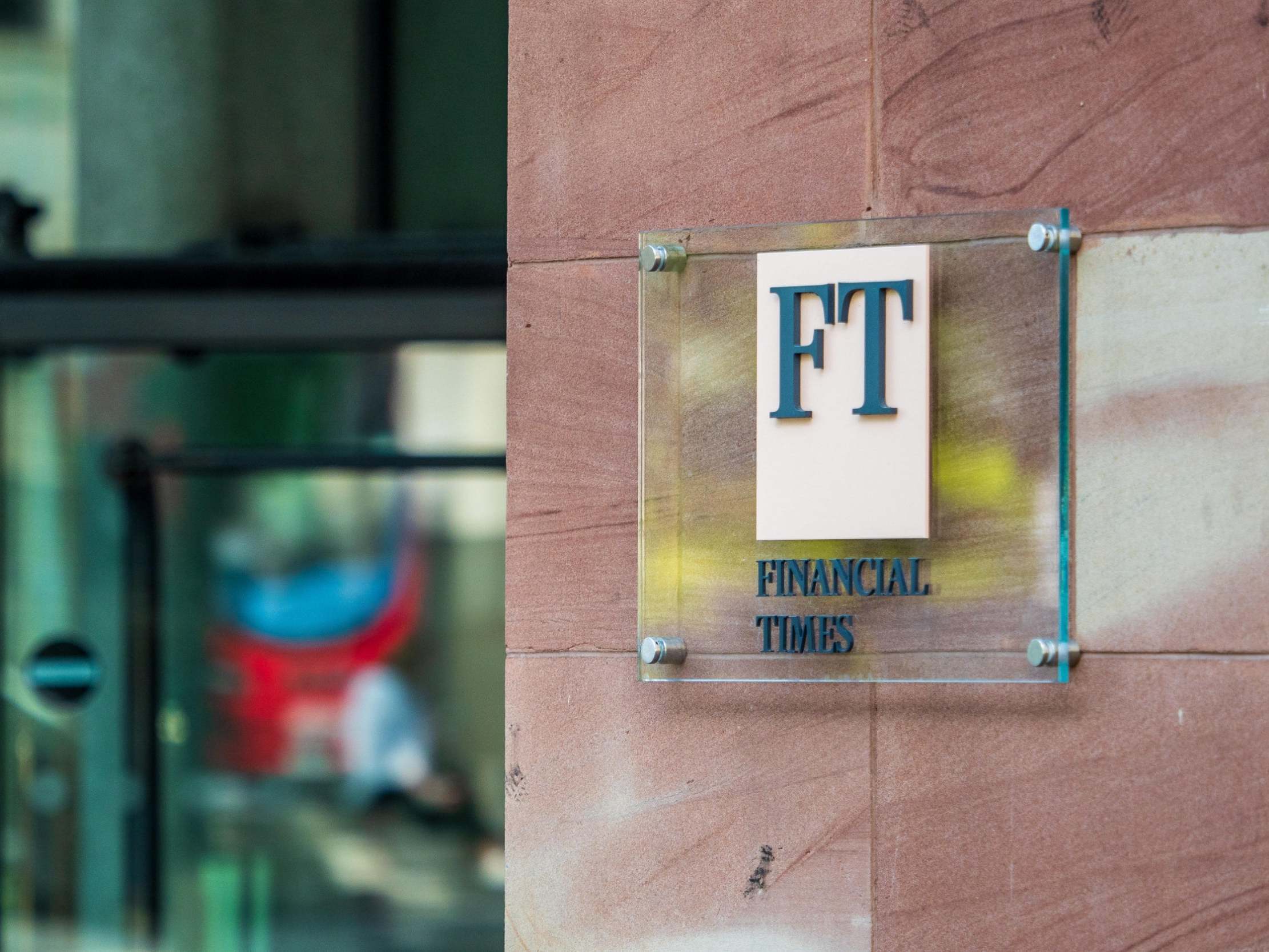Financial Times reporter accessed private calls at Independent and Evening Standard
Media correspondent eavesdropped on Zoom meetings as staff were told sensitive news of pay cuts and furloughs during pandemic

Your support helps us to tell the story
From reproductive rights to climate change to Big Tech, The Independent is on the ground when the story is developing. Whether it's investigating the financials of Elon Musk's pro-Trump PAC or producing our latest documentary, 'The A Word', which shines a light on the American women fighting for reproductive rights, we know how important it is to parse out the facts from the messaging.
At such a critical moment in US history, we need reporters on the ground. Your donation allows us to keep sending journalists to speak to both sides of the story.
The Independent is trusted by Americans across the entire political spectrum. And unlike many other quality news outlets, we choose not to lock Americans out of our reporting and analysis with paywalls. We believe quality journalism should be available to everyone, paid for by those who can afford it.
Your support makes all the difference.A Financial Times reporter listened in on confidential and sensitive video calls at rival news organisations as staff were told about salary cuts and furloughs by editors and senior managers, an investigation by The Independent has established.
Mark Di Stefano, who has been suspended by the FT pending an investigation into the incident, accessed private Zoom meetings held by The Independent and The Evening Standard as journalists learnt how measures introduced because of the coronavirus pandemic would affect them.
Log files show an account registered to Di Stefano’s FT.com email address joined the private video call for The Independent staff on Thursday for 16 seconds. The caller’s video was disabled, but journalists saw his name flash briefly on screen before he left the meeting.
Five minutes later, a separate account joined the call, this time unnamed. Again, video was switched off so that only a black square was displayed among the screens showing up to 100 people who had been invited to attend. The anonymous user account, which remained in the meeting until the end, was later shown to be linked to the mobile phone used by the same Financial Times reporter.
Di Stefano posted the news on Twitter while The Independent’s staff were still being told details of, and reasons behind, salary cuts and furloughs, and before the editor, Christian Broughton, and senior management at the title had contacted other journalists who could not join the video call, including those based in the US.
Shortly afterwards, the Financial Times published a report by Di Stefano, including confidential details about the company’s advertising downturn and quoting chief executive Zach Leonard. The article stated that “people on the call” were the source of the story.
The investigation by The Independent also shows that the account linked to Di Stefano’s mobile phone gained access to an Evening Standard video call made by editor George Osborne, announcing large-scale furloughs and salary cuts to staff on 1 April.
Again, the details appeared on Di Stefano’s Twitter account, describing the “internal Zoom call” before it had ended, and a report quoting Osborne in the private meeting appeared on the Financial Times website.
Use of the video call app Zoom has soared as millions around the world have abandoned offices to work from home, and it is the same software used by the Cabinet during the pandemic.
Di Stefano joined the FT as a media and technology reporter in January from Buzzfeed, where he gained a reputation as a quick source of media news and gossip, breaking stories to his 100,000 followers on Twitter.
The FT’s code of conduct specifies: “The press must not seek to obtain or publish material acquired by … intercepting private or mobile telephone calls, messages or emails. Engaging in misrepresentation or subterfuge … can generally be justified only in the public interest and then only when the material cannot be obtained by other means.”
The editor of The Independent Christian Broughton said: “We respect freedom of speech and understand the challenges of newsgathering, but The Independent considers the presence of a third-party journalist in a staff briefing to be entirely inappropriate and an unwarranted intrusion into our employees’ privacy. Our spokesperson had a full statement prepared for the press – any interested reporters only needed to call and ask.”
A spokesperson for the Evening Standard said: “For a journalist from the FT to have illegitimately accessed a private Zoom call is unacceptable. We are sure the FT will want to offer an immediate explanation and an apology.”
The Independent separately contacted the Financial Times for comment for this article but they declined. Mark Di Stefano also declined to comment.